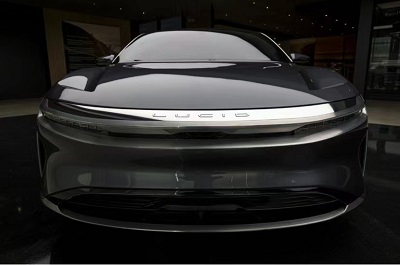The US Securities Regulatory Commission cools down the electric car SPAC boom
Lucid’s parent company passed SPAC’s deal with lithium battery backed electric car startups in July, which seems to be tailor-made. Retail investors welcome deals between SPACs and electric car manufacturers.
A crackdown
A crackdown on SPAC (blank cheque company, also known as special purpose acquisition company) is brewing. The market value of the electric car start-up Lucid Group Inc. soared to more than General Motors Co. this year.
The company admitted on December 6 that the US Securities and Exchange Commission was investigating it with short sellers five months ago.
The merger of the cheque company and the business forecasts it provides to investors. The news caused the company’s stock to plummet.

For a company deemed to have real potential in the electric car race, this disclosure is surprising.
In September of this year, the U.S. Environmental Protection Agency certified that the company’s Air car can run 520 miles on a single charge, which is currently the best result in the world.
Moreover, when Lucid Motors went public, it had a much better reputation than its peers, SPAC Nikola Corp. and Lordstown Motors Corp..
At the beginning of this year, SPAC transactions were still one of the most popular investment projects on Wall Street. The so-called SPAC transaction refers to the backdoor listing of a company by merging with a company established specifically for acquisition.
Now, all parties are reviewing this kind of transaction.
The US Securities Regulatory Commission has stepped up its review efforts, especially in terms of financial disclosure and statements about its prospects as a listed company. At the same time, investors have become more cautious, choosing to withdraw from more mergers.
SPAC’s deal with electric car startups seems to be tailor-made. It takes several years for a new car to go on the market, and these companies usually rely on battery manufacturers for their key technologies, and their experience in mass production is not as good as that of traditional car manufacturers.
Delays are fairly common. If they do meet their production goals-even Tesla failed many times in its early days-there is no consensus on how long it will take for consumers to switch from gasoline cars to electric cars. This makes sales forecasting somewhat like a guessing game.
A way to quick money
Although electric car manufacturers are the latest companies to be dragged down, SPAC’s stock price has fallen overall this year. Retail investors initially saw SPAC as a way to invest in growth stocks, and it was often a way to make money quickly.
On the same day that Lucid Motors disclosed that it was under investigation, Digital World Acquisition Corp., which agreed to merge with former President Trump’s Trump Media & Technology Group, said it was under investigation by regulators. Klausner said: “The Securities Regulatory Commission is spending more time reviewing the power of attorney and asking more questions.”
However, some of the most high-profile disasters in the SPAC space have happened to electric car companies. Retail investors are looking for the next Tesla, which has a market value of $1 trillion. At present, many investors have already suffered huge losses.
Nikola Motors
Nikola Motors was the first electric car company to publicly run into trouble. After the short-selling firm Hindenburg Research issued a report in September 2020 that Nicholas did not have its own technology, the Securities Regulatory Commission launched an investigation into the company.
According to the report, the hydrogen fuel cell truck displayed by the company cannot drive at all.
Lordstown Motors
Lordstown Motors has similar management problems, and the company’s founder Steve Burns has exaggerated the buying interest of its electric pickup truck Endurance.
Several law firms have been investigating the company and are preparing to initiate a lawsuit over its failure to begin manufacturing Air cars in the second quarter.
The day after the SPAC deal was announced earlier this year, the company said it would not produce cars until the second half of the year, which dealt a blow to its stock price.
Since November 29, Lucid Auto’s share price has fallen by 20%, and since the disclosure of the Securities Regulatory Commission’s investigation, it has fallen by nearly 8%.
Even without regulatory issues, new electric car companies like Lucid Motors will face a difficult road to catch up with Tesla.
Tesla entered an empty market with no competitors. When these guys arrive, traditional automakers are doing the same. They will launch hundreds of electric car brands in the next three years. It will be difficult to replicate Tesla’s success in the future.





